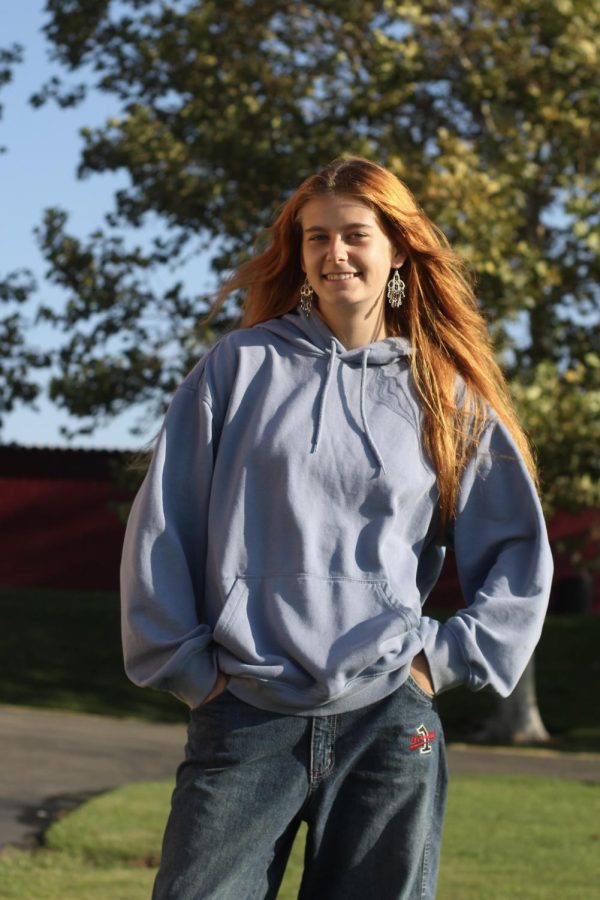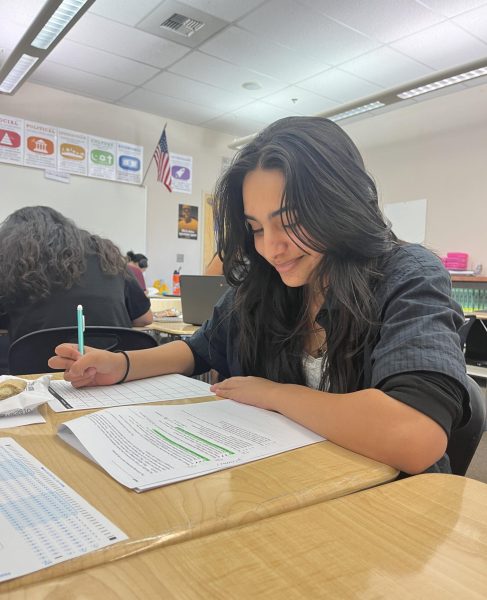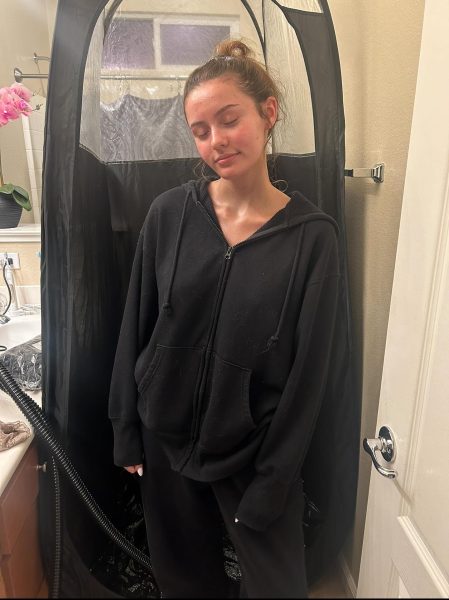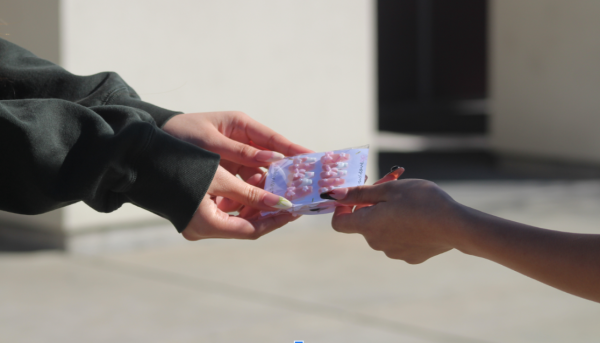Q&A: Exchange student Annick Friedrich talks about her experience coming to Rocklin from Germany
Annick Friedrich Poses for a photo on the soccer fields before school on Sep. 20. Photo by Isabel Soto
After moving to Rocklin from Germany, Annick Friedrich talks about the differences in living and going to school. Friedrich talks about culture, language, and school.
Q: Where in Germany did you live?
A: Gießen; it is located in the middle of Germany.
Q: How would you describe the move from Germany to Rocklin?
A: It was definitely interesting because there are a lot of new and different things. I enjoyed it and all the people are very nice.
Q: Is there anything particularly different that you noticed?
A: The school system in general is really different. You walk from class to class, teacher to teacher. In Germany, we have one class and the teacher comes into our room and [teachers] a variety of subjects. We have subjects we need to take and we can’t choose any. You drive a lot [in America]. I also thought that there would be more time to do stuff outside of school. I wasn’t really expecting that you only go to places by car and especially if you don’t have a driver’s license. In Germany, you get your license at 18, so a lot later. I can’t really be independent in a way – someone always has to drive me somewhere.
Q: What’s the most unexpected change that you’ve noticed?
A: I don’t know, I feel like everything kind of met my expectations because I prepared myself and I knew a lot of things.
Q: What things did you do or learn to prepare yourself?
A: I didn’t do anything specific to prepare myself. I just [had] some knowledge of American culture so I feel like my expectations were the same as reality in a way. I knew people would be really friendly and compliment you a lot — say thank you a lot. I tried to do that, too, and also be friendly. I knew what to expect in school. I thought school would be easier, to be honest, and I just feel like I had a very realistic picture of how it would be.
Q: How did you learn English?
A: In Germany, you start to learn a new language in fifth grade. You can learn Latin, French or English. You start out learning words and writing sentences, then you can start to write paragraphs and speak them a little bit.
Q: Are there a lot of bilingual people in Germany, then?
A: I wouldn’t say bilingual, but they can speak it. A lot of people learn English, especially with social media; a lot of people watch creators that speak English.
Q: Why did you come to Rocklin?
A: In the [exchange] program, you choose a country you would like to go to. I chose the States and they placed me here, so I can’t really choose, but I’m really happy to be in California.
Q: I bet meeting new people was exciting. Is there any difference in culture that you’ve noticed?
A: People are more friendly and in a superficial way, but it’s hard to make real friends you can talk to about everything.
Q: What has been the best and worst experience so far?
(A student passes by and chimes in: The worst experience is precalculus.)
A: Yeah you could say that. (laughs) I feel like the best experience was my trip to Monterey. I went to Lake Tahoe and San Francisco so far, so I like seeing a lot of different places and I was able to do that in just a few weeks.
Q: How would you compare the size of Germany to what it’s like here?
A: It’s as big as California or a little bigger. It’s pretty small. It’s tiny – it’s like eight hours from the top to the bottom. I walked to school for about 15 minutes. Everything is small like European cities.
Q: I know you run on the Whitney Cross Country team. Do they have cross-country in Germany?
A: There are no school sports, so you have to go to a club. You mostly get out at 1 p.m. and there are some classes in the afternoon, depending on what grade you’re in. I don’t know if it’s cross-country in particular, but they have something similar to that.
Q: What time does your school start in Germany?
A: 7:45 a.m.
Q: How was that transition from having school for five hours to seven hours?
A: You can’t do anything outside of school [here]; the school’s pretty much your whole life, I would say. And in Germany, you can meet with people in the afternoon, do stuff and hang out.
Q: Why did you join cross country?
A: I think it’s the sport I thought I would be best at. I do gymnastics at home. I always enjoyed running, but I didn’t do it a lot.
Q: What are your other hobbies?
A: I play the cello in the orchestra. I still don’t have an instrument. I have been playing instruments for a very long time. I played cello for 10 years and piano since fourth grade.
by ISABEL SOTO










